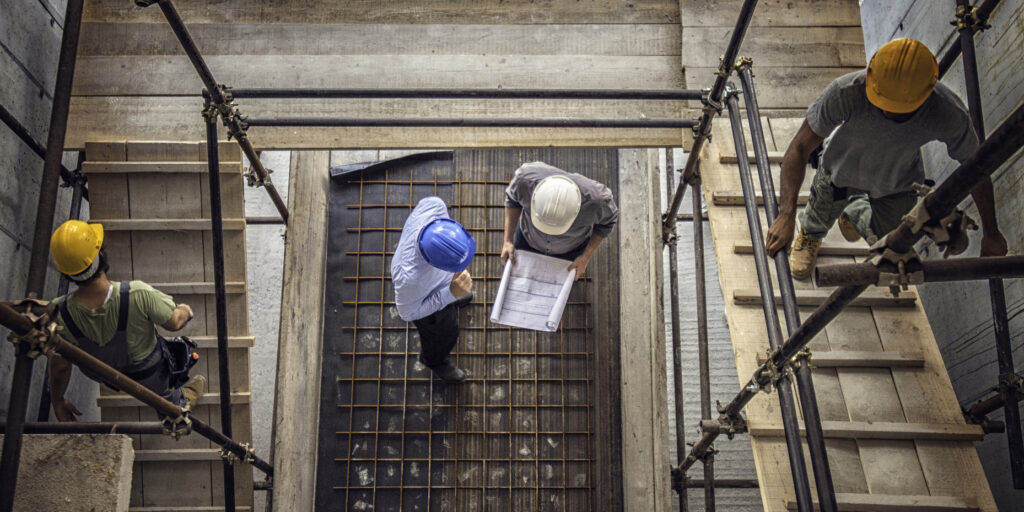— 5 min read
7 Tips to Improve Accounts Payable in Construction
Last Updated Jun 11, 2024
Dawn Killough
34 articles
Dawn Killough is a writer with over 20 years of experience in construction, having worked as a staff accountant, green building advisor, project assistant, and contract administrator. She holds a BA in Psychology and MS in Conflict Resolution, both from the University of Portland. She shares fundamental green building strategies and techniques in her book, Green Building Design 101. Dawn lives in Portland, Oregon.
Last Updated Jun 11, 2024

The importance of accurate accounts payable and other accounting records in the construction business cannot be overstated. Managing accounts payable — ensuring accurate records and quick payments — is the key to all construction companies staying in business.
Learn more: The basics of construction accounting
Table of contents
What is accounts payable in construction?
"Accounts payable" is a term for the money you owe to vendors and subcontractors for business costs and expenses. It includes all types of costs, including overhead, direct costs, and indirect costs.
Bills that are unpaid — from the time the vendor bills you until you make a payment — are considered your company’s accounts payable. Obviously, the number of outstanding bills will fluctuate. It’s similar to accounts receivable in this way.
The payment of accounts payable is often linked to payments received in accounts receivable — especially in construction. In other words, companies are often unable to pay their bills until they receive payment from their customers. This is most often the case for direct costs for projects: Overhead and general business expenses are usually paid as they are received.
To maintain cash flow and ensure you make a profit, it's important to have an accurate accounts payable total — you'll be basing your customer billings on that.
7 tips to improve accounts payable management
Managing accounts payable means ensuring that all invoices have been accounted for and that they get paid in a timely fashion. Having a process for doing this is essential as your business grows. Here are some ways you can improve your accounts payable management.
1. Designate one person or email address to receive all invoices
Designating a singular person or email address to receive all invoices helps prevent confusion on the part of your vendors about who to send the invoices to — and makes it easier for you to track if an invoice has been received.
You should also encourage your vendors to email invoices instead of faxing or mailing them, as emailed invoices can easily be recalled and reprinted.
2. Enter all invoices in your accounting software as they come in
Entering invoices as they come in creates a record showing that the invoice exists, and you can then track it down if the hard copy gets misplaced.
Doing this before distributing the invoices for approval or coding ensures that you’ve got a record of all incoming accounts payable. If you send your invoices to management for approval before entering them into your software, there’s no way to know that the invoice was received. This can lead to lost invoices and unaccounted-for expenses.
3. Track retainage owing and paid
Make sure you are accurately tracking the retainage that is owed to your subcontractors. Retainage is recorded separately from accounts payable, since it is typically not payable in the current period. Instead, contractors typically track it in a separate account called "retention payable" or "accounts payable - retention." Once the subcontractor invoices for retained funds, it is moved from retention payable to accounts payable.
Assuming your chart of accounts is set up correctly, most construction accounting software will record retainage in the correct account automatically. If you’re using a generic accounting program, recording retainage payments may require a manual process.
Stay updated on what’s happening in construction.
Subscribe to Blueprint, Procore’s free construction newsletter, to get content from industry experts delivered straight to your inbox.

4. Go paperless
Scan or save copies of accounts payable invoices to your server or cloud storage system. By doing this, you’ll ensure you always have a copy of every invoice, even if something happens to the paper copy.
You should also take advantage of digital routing and approval processes if your accounting software allows them. These processes reduce the chance of lost invoices and help ensure that all costs are recorded in the accounting system.
5. Run regular accounts payable reports
Most software packages allow you to enter payment due dates for accounts payable invoices. Use these dates to filter your reports so you know how much is due at any one time.
By reviewing the amounts due on a certain date, you can put together an accurate cash flow projection, showing how much is due each week or month. These amounts should inform your job billings, so you can ensure you are billing enough to cover all your expenses.
6. Schedule payments at regular intervals
Have a regular payment schedule that you stick to as much as possible. Set specific days of the month or a day of the week that you make payments on invoices that are due. For example, you could pay bills every first and fifteenth day of the month, or every Wednesday.
Since invoices have different due dates, you’ll need to review these to determine when’s the best time to make your payments. As often as once a week is usually a good place to start, as this allows you to address urgent payments as well as keep current with necessary services such as utilities.
7. Note any joint check payees and amounts on the invoice
If a subcontractor or supplier needs to get a joint check, make a note on the invoice or in your software so the person creating the checks can see it. This is particularly important if the person creating the checks is different from the person who entered the invoice and knows about the joint check.
Managing accounts payable with an eye on cash flow
Tracking and paying accounts payable accurately and in a timely fashion is essential for any construction business to help manage its cash flow.
Additionally, taking advantage of tools like construction accounting software and electronic routing of invoices make this process easier and quicker. Running regular accounts payable reports and scheduling regular payments will help you predict your cash flow needs so you can plan your customer billings and know your cash standing.
Was this article helpful?
Thank you for your submission.
91%
9%
You voted that this article was . Was this a mistake? If so, change your vote
Scroll less, learn more about construction.
Subscribe to The Blueprint, Procore’s construction newsletter, to get content from industry experts delivered straight to your inbox.
By clicking this button, you agree to our Privacy Notice and Terms of Service.
Thank you!
You’re signed up to receive The Blueprint newsletter from Procore. You can unsubscribe at any time.
Categories:
Written by
Dawn Killough
34 articles
Dawn Killough is a writer with over 20 years of experience in construction, having worked as a staff accountant, green building advisor, project assistant, and contract administrator. She holds a BA in Psychology and MS in Conflict Resolution, both from the University of Portland. She shares fundamental green building strategies and techniques in her book, Green Building Design 101. Dawn lives in Portland, Oregon.
View profileExplore more helpful resources

Construction Accounting Software: Key Features and What To Look For
Commercial contractors manage large and complicated budgets that can have slow payment rates and volatile costs. They also have to accurately allocate job costs based on specific factors such as...

Construction Collaboration: Navigating the Intersection of Project Management and Accounting
Accounting and project teams work together to move the financial aspects of projects through to completion. Data sharing allows for concurrent review to make this possible. Teams need to share...

What are Committed Costs in Construction Accounting?
In construction projects, managing finances can be a challenging task — but understanding committed costs can simplify the process. Committed costs refer to expenses that are guaranteed through formal agreements,...

Understanding Construction Financial Statements
For construction firms, effectively managing financial statements is an important building block for success. These documents play a key role in tracking performance, maintaining financial health and securing future projects....
Free Tools
Calculators
Use our calculators to estimate the cost of construction materials for your next project.
Templates
Find a template to help you with your construction project tasks.
Material Price Tracker
Get the latest U.S. retail prices and view historical trends for common building materials.
Glossary
Explore key terms and phrases used in the industry.
